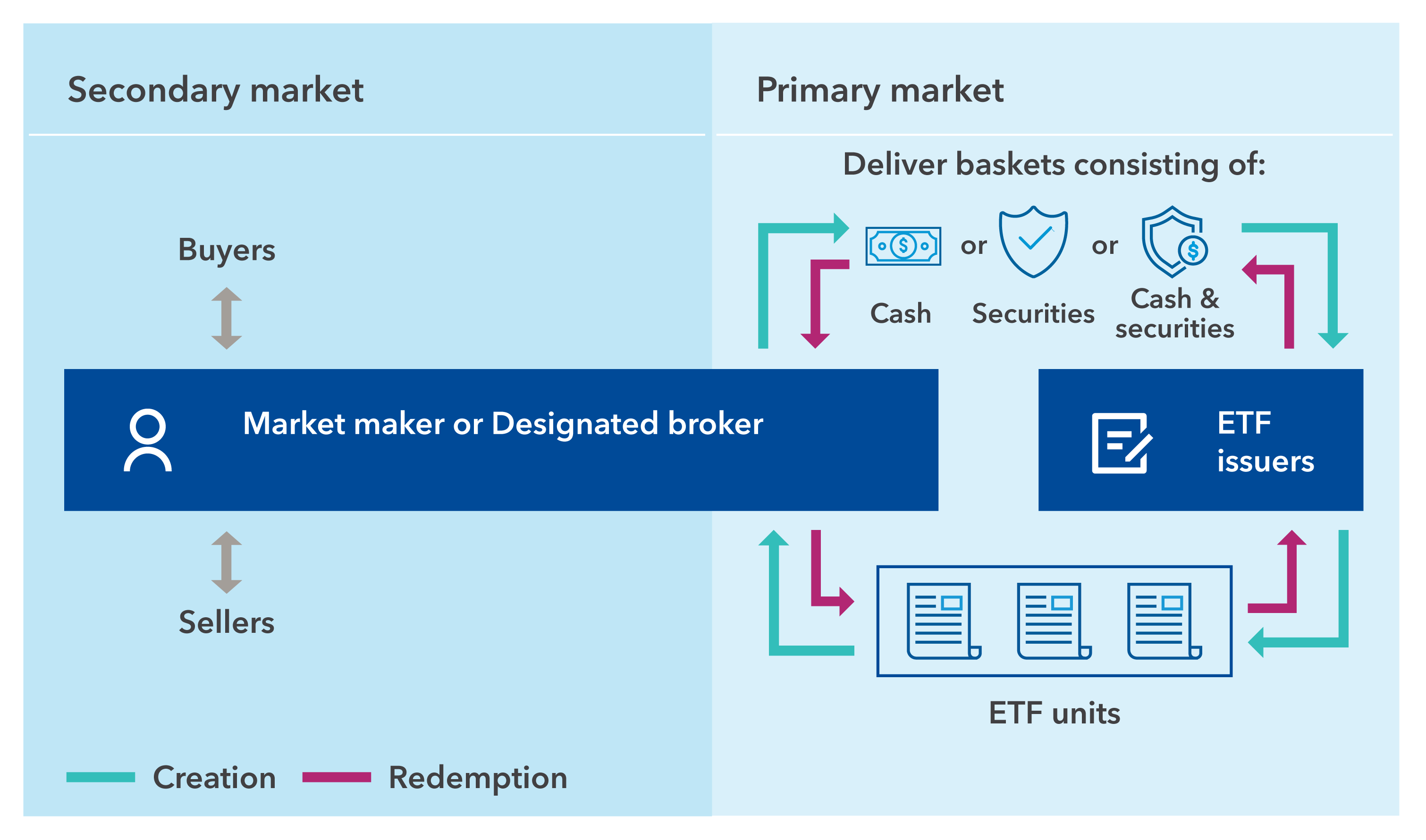For advisor use only. Not for use with investors.
ETF securities (units or shares) trade like stocks on an exchange. For example, an order to buy 250 units of an ETF on the “ask” (offer price) would be placed through a brokerage account and then executed at the lowest possible price where 250 units of the ETF are available in the secondary market.
Creation/redemption process
The creation/redemption process allows the number of ETF units to increase or decrease as needed, depending on market demand. The ETF issuer works with a market maker or designated broker to create and redeem ETF units in the primary market to meet investor demand to buy or sell ETF units in the secondary market.
Creation process: Increases the number of ETF units to meet market demand
A designated broker asks the ETF issuer to create units. The broker delivers cash and/or an ETF issuer’s prescribed basket of securities, or a combination of cash and securities in exchange for more units of the ETF, which can be sold in the secondary market to meet demand. The creation process increases the number of ETF units outstanding.
Redemption process: Decreases the number of ETF units in response to market demand
A designated broker requests to redeem ETF units from the ETF issuer who then delivers cash or individual holdings from the fund to the broker to sell in the secondary market. The redemption process decreases the number of ETF units outstanding.
ETF creation/redemption process

Trading best practices
- Use limit orders (which specify the price at which an investor is willing to buy or sell) instead of market orders (which are executed quickly, at the current price).
- Avoid trading during the first and last 15 minutes of the trading day.
- Be mindful of the bid-ask spread, particularly during market volatility.
- If possible, trade ETFs with international exposure when underlying markets are open.
- Assets under management do not constrain the liquidity profile of an ETF as designated brokers can create or redeem units of the ETF based on demand.
- Advisors should leverage the investment managers’ capital markets desk (which helps promote efficient trading) for support, especially if placing large, complex trades.
Key term glossary
Primary market: The primary market is the section of the capital market where ETF issuers work with market makers to adjust the supply of ETF shares in the market.
Secondary market: marketplace where investors buy and sell securities. Common examples are stock exchanges like the Toronto Stock Exchange, New York Stock Exchange and NASDAQ.
Market maker: A broker-dealer firm that helps set the market price for the ETF in the secondary market and executes client trades.
Designated broker: A special type of market-maker that has a contracted opportunity with the ETF issuer to create and redeem ETF securities in the primary market based on market demand.